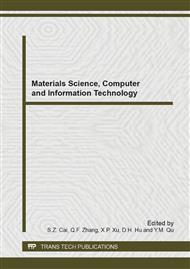p.4660
p.4665
p.4669
p.4675
p.4680
p.4684
p.4690
p.4694
p.4698
Bayesian Inference of Information Theoretic Metrics of Anonymity
Abstract:
Information theoretic metrics is popular theory to measure anonymity. However the difficulty in getting the probability distribution of subjects hampers its practical usage. In this paper we propose a Bayesian inference method to tackle this problem. Our method makes it possible to compare the anonymity of different anonymous systems. We use this method to analyze Threshold Mix and point out different system parameters which do and do not have influence on anonymity.
Info:
Periodical:
Pages:
4680-4683
Citation:
Online since:
July 2014
Authors:
Keywords:
Price:
Сopyright:
© 2014 Trans Tech Publications Ltd. All Rights Reserved
Share:
Citation:


